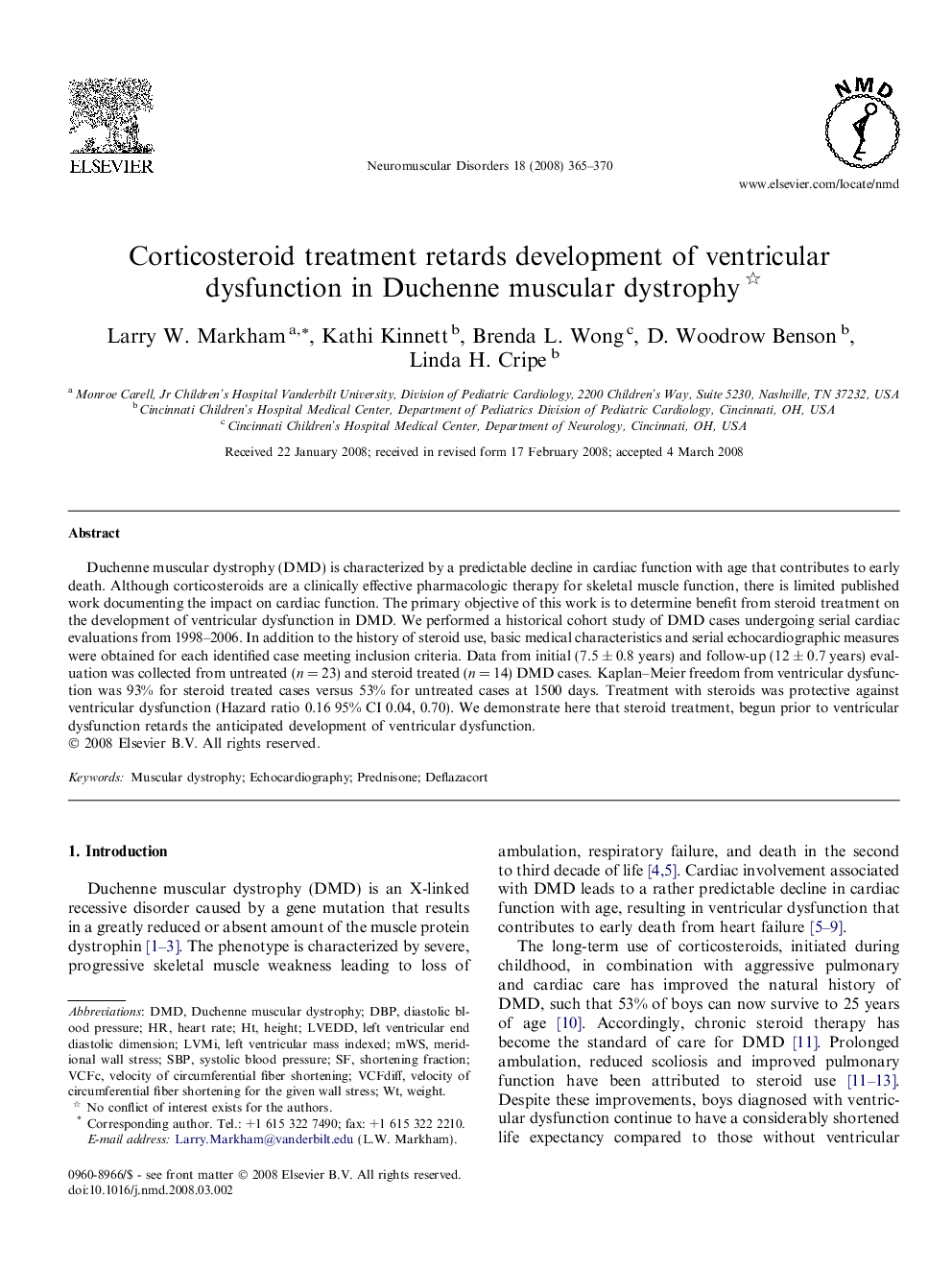| Article ID | Journal | Published Year | Pages | File Type |
|---|---|---|---|---|
| 3081568 | Neuromuscular Disorders | 2008 | 6 Pages |
Abstract
Duchenne muscular dystrophy (DMD) is characterized by a predictable decline in cardiac function with age that contributes to early death. Although corticosteroids are a clinically effective pharmacologic therapy for skeletal muscle function, there is limited published work documenting the impact on cardiac function. The primary objective of this work is to determine benefit from steroid treatment on the development of ventricular dysfunction in DMD. We performed a historical cohort study of DMD cases undergoing serial cardiac evaluations from 1998-2006. In addition to the history of steroid use, basic medical characteristics and serial echocardiographic measures were obtained for each identified case meeting inclusion criteria. Data from initial (7.5 ± 0.8 years) and follow-up (12 ± 0.7 years) evaluation was collected from untreated (n = 23) and steroid treated (n = 14) DMD cases. Kaplan-Meier freedom from ventricular dysfunction was 93% for steroid treated cases versus 53% for untreated cases at 1500 days. Treatment with steroids was protective against ventricular dysfunction (Hazard ratio 0.16 95% CI 0.04, 0.70). We demonstrate here that steroid treatment, begun prior to ventricular dysfunction retards the anticipated development of ventricular dysfunction.
Keywords
Related Topics
Life Sciences
Neuroscience
Developmental Neuroscience
Authors
Larry W. Markham, Kathi Kinnett, Brenda L. Wong, D. Woodrow Benson, Linda H. Cripe,
